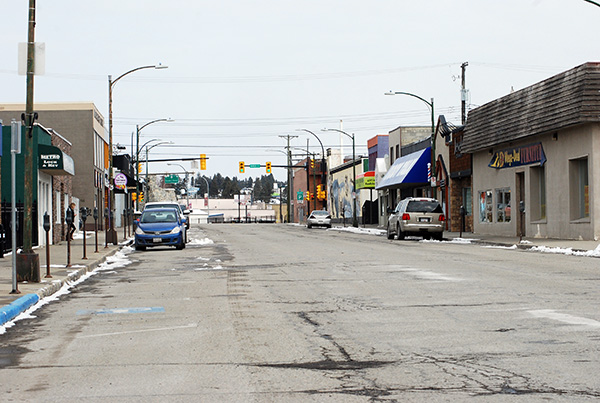Home »

B.C.’s COVID-19 response, latest updates for April 4
Adrian Dix, Minister of Health, and Dr. Bonnie Henry, B.C.’s provincial health officer, have issued the following joint statement regarding updates on the novel coronavirus (COVID-19) response in British Columbia.

“We are announcing 29 new cases, for a total of 1,203 cases in British Columbia.
“Every health region in British Columbia has patients with COVID-19: 554 are in the Vancouver Coastal Health region, 424 are in the Fraser Health region, 76 are in the Island Health region, 128 are in the Interior Health region and 21 are in the Northern Health region.
“There have been 38 COVID-19 related deaths in British Columbia. In the last 24 hours, we are saddened to report a further two deaths in the Vancouver Coastal health region and one in the Fraser Health region. We offer our condolences to everyone who has lost their loved ones.
“There are now outbreaks in 23 long-term care and assisted-living facilities in the Vancouver Coastal and Fraser health regions, with a combined 197 cases of COVID-19. Residents in these facilities are the most vulnerable citizens, and efforts to protect them continue to be a major focus of our health teams.
“To date, 704 people who had tested positive for COVID-19 have recovered and no longer require isolation.
“Of the total COVID-19 cases, 149 individuals are currently hospitalized, 68 of those are in intensive care and the remaining people with COVID-19 are recovering at home in self-isolation.

“Everyone in British Columbia is doing what it takes to protect our families, our elders, our health-care workers and our communities.
“We must continue to hold the line; to keep our firewall strong and flatten the curve.
“A key part of our response is high quality scientific research to help B.C. get through the first wave of COVID-19 safely and find ways to prevent it from returning here and around the world.
“A new COVID-19 Strategic Research Advisory Committee, led by Dr. David Patrick and supported by former provincial health officer Dr. Perry Kendall and other notable public health experts, is facilitating research efforts across the province.
“The committee’s work includes advising the Michael Smith Foundation for Health Research (MSFHR), which has received $2 million to fund research in several important public health areas.
“Their research will focus on B.C.-specific epidemiology and public health countermeasures to address some of the challenges of long-term care homes, inner city populations, rural communities, Indigenous people, and health-care workers. This is in addition to a variety of research that is already underway across B.C., as we do all we can to understand this virus, to stop transmission and protect our province,” the joint statement concluded.
MSFHR is British Columbia’s health research funding agency. Funded by the province, MSFHR helps develop, retain and recruit the talented people whose research improves the health of British Columbians.
On April 6, MSFHR will open the first of several funding calls for B.C. researchers who have research projects that could provide high quality scientific research to help B.C. get through the first wave of the COVID-19 epidemic safely and effectively, and that could help prevent a significant return in the future.
The first research call will address the following:
* Rapid evaluation of public health countermeasures.
* B.C. population-specific epidemiologic support for decision makers, including the identification and monitoring of key groups (e.g., residents of long-term care facilities, inner city populations, Indigenous peoples, health-care workers, etc).
* Human geographic considerations in B.C., including rural populations, community, culture and population movement.
* The identification and mitigation of the impacts of the pandemic and pandemic response, including the secondary effects on the health of the population of B.C.
* The impacts of rapid health-service redesign and redeployment on health outcomes in B.C.
MSFHR has also funded four projects, already underway:
* Tracking the transmission of COVID-19 in B.C.
* Testing B.C.’s baseline susceptibility to COVID-19.
* Developing a vaccine for COVID-19.
* Understanding the impact of the “infodemic,” a term coined by the World Health Organization to describe spreads of disinformation on the virus.
These projects are all directly supporting the B.C. Centre for Disease Control (BCCDC).
Further investigative and research actions undertaken in the Province currently include research projects in progress from BCCDC, University of British Columbia (UBC) and UBC Okanagan, University of the Fraser Valley, Thompson Rivers University, Simon Fraser University, Royal Roads University, BC Institute of Technology, Vancouver Coastal Health Research Institute, Providence Health Care Research Institute and many more coming together.
A few key B.C.-based research projects funded by the Canadian Institute of Health Research are:
* Receptor-blocking drug research.
* Pilot trial of drug treatments in patients with severe COVID-19 in China and precision cell therapy for protection against SARS-CoV-2 infection.
* Provide virtual care to patients undergoing home isolation/quarantine and collect data on symptom reporting, transmission and incubation period.
* Strengthen global coordination of the COVID-19 outbreak response through a fuller understanding of cross-border measures adopted, their likely impacts, reason(s) for adoption and strategies to increase compliance.
* Identify individual and community risk factors for mental health outcomes during and after the quarantine, thereby determining the course of post-quarantine recovery and pinpointing the populations that need public health services the most.
* Artificial intelligence-augmented technology for drug development against COVID-19.
As well, research is underway at an independent lab Abcellera Inc., working with the University of British Columbia, to fast-track antibody products to treat and prevent COVID-19.
The BCCDC, with support from MSFHR, is committing to many projects around tracking through seroepidemiology (epidemiological investigations involving the identification of antibodies to specific antigens in populations of individuals) to follow B.C. population exposure, data to establish a baseline and obtain estimates of cumulative incidence over time to inform a response, and provide information on herd immunity and inform vaccine planning.
They are also working on mathematical modelling of the epidemic.
This is only a snapshot of actions undertaken, which are overseen by a strategic research advisory committee led by Dr. David Patrick and supported by former provincial health officer Dr. Perry Kendall and other noted public-health experts. The committee is strongly focused on facilitating research to end to the threat of emerging and re-emerging COVID-19 epidemics.
The COVID-19 self-assessment app can be downloaded here.
Lead image: Cranbrook’s downtown 9th Avenue South at noon on Thursday, April 2. The street is normally bustling at that time on weekdays. Ian Cobb/e-KNOW photo
e-KNOW







